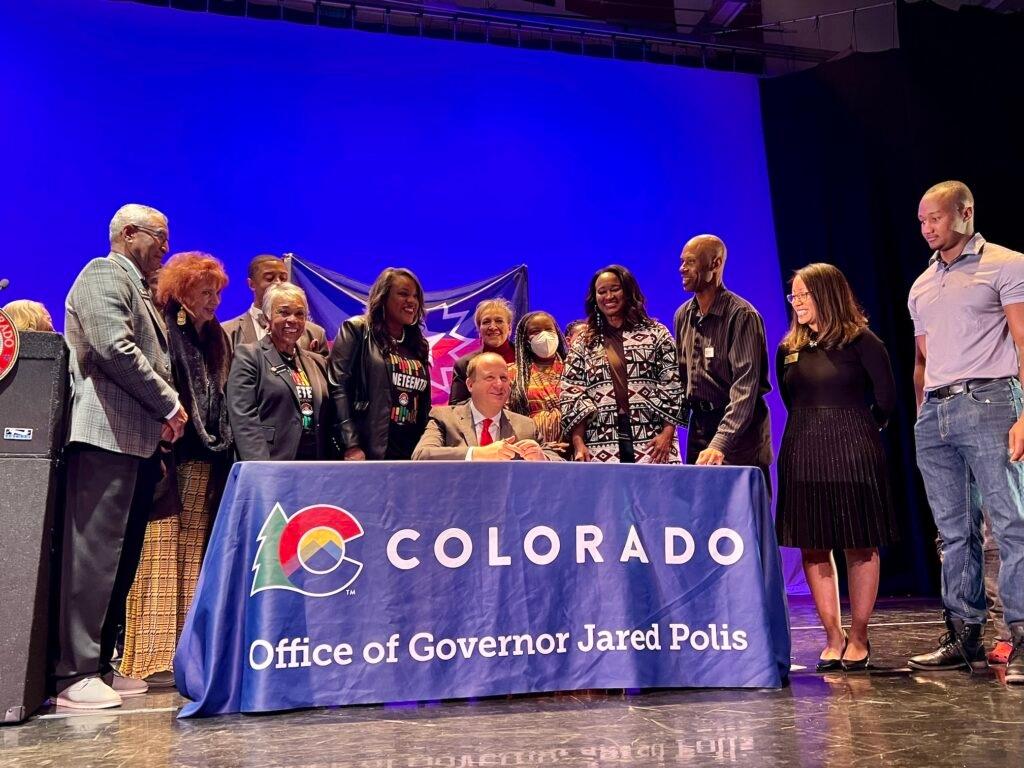
Most people know that Colorado is one of the first states in the country to mark Juneteenth as a state holiday. That happened earlier this year, when Gov. Jared Polis signed Juneteenth into state law in May at a ceremony at Cleo Parker Robinson Dance in Denver.
Juneteenth marks the day in 1865, on June 19, when the final Black Texans learned slavery was over. The institution had legally ended in 1862 with the Emancipation Proclamation, but enslaved people in Texas didn’t find out until two and a half years later, during which time they continued to toil as enslaved people.
What some Coloradans don’t know is that, even without official holiday designations, Juneteenth has enjoyed a robust celebration in Denver for years. To tell listeners more about that, Colorado Matters broadcasts today excerpts of a roundtable discussion with three guests:
- Attorney and Denver native Rita Lewis
- Dr. Daddio, a pioneer of Black radio in Colorado who is this year's Juneteenth parade Grand Marshall on Saturday
- Norman Harris, Executive Director of the JMF Corporation, whose grandfather was involved in the city's original Juneteenth celebrations.
They talked about what the day has meant to them over the years, touching on parades and celebrations worthy of getting a haircut, the symbolism of eating watermelon and red foods on Juneteenth, and how they anticipate Juneteenth celebrating economic independence for Black people in Colorado and nationwide.
In addition to Colorado, other states that recognize Juneteenth as state holidays are Hawaii, North Dakota, Texas, Massachusetts, New York, Virginia, Washington and Oregon. Being a state holiday means students will learn about Juneteenth in public school classrooms, and students and state workers will get a paid day off.









